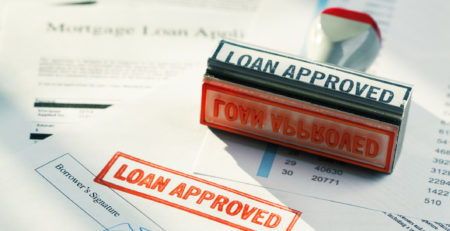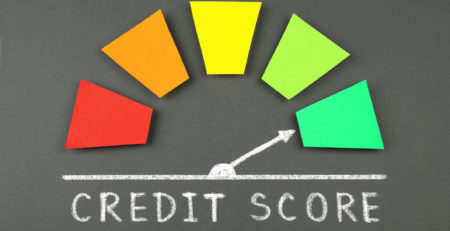Credit Report Dispute Letter Tips to Fix Your Score
Inaccuracies on your credit report are more common than many people realize. According to a study by the Federal Trade Commission, 1 in 5 Americans finds a mistake on their credit report that could affect their score. These mistakes can lead to loan denials, higher interest rates, or even lost job opportunities.
In this article, we’ll walk you through how to initiate a credit report dispute, explain why it matters, and provide practical steps to improving your credit score. You’ll also learn when to seek professional help and how to protect your credit score during the process.
How Credit Report Errors Hurt Your Score
Even a small error on your credits reports can have major consequences. Understanding what these errors are and how they affect your score is the first step in taking control.
Common credit report errors
Some of the most frequent errors include:
- Incorrect personal information: Wrong name, address, or Social Security number.
- Duplicate accounts: The same debt reported more than once.
- Outdated balances: Old account balances that haven’t been updated.
- Wrong account status: Accounts wrongly labeled as “delinquent” or “closed.”
- Accounts that aren’t yours: These could result from identity theft or reporting errors.
Each of these mistakes can affect different parts of your credit profile, leading to unfair penalties.
How do these errors impact your credit score
Your credit score is made up of several components: payment history (35%), amounts owed (30%), length of credit history (15%), new credit (10%), and types of credit used (10%). An error in any of these categories can have ripple effects. For instance:
- A mistakenly reported late payment can lower your score by 90 to 110 points.
- Incorrect balances can affect your credit utilization rate, another major factor.
- Reporting accounts that you didn’t open can trigger fraud alerts or worse, lock you out of new credit opportunities.
Disputing a credit report error early helps you avoid paying higher interest rates or being rejected for financing that you otherwise deserve.
Step-by-Step: How to Dispute Errors on Your Credit Report
Improving your credit score may sound intimidating, but the process is more manageable than you think. Follow this guide to initiate a credit report dispute and track your progress effectively.
Step 1: Obtain your credit reports
How to dispute a credit report error? Start by requesting your reports from all three major credit bureaus—Equifax, Experian, and TransUnion. During disputes, always request reports from all three bureaus—an error may appear on one but not the others.
Step 2: Review the reports line-by-line
Check every detail: your name, address, social security number, accounts, payment history, and any public records. Look especially for:
- Misspelled names or wrong Social Security numbers
- Accounts you didn’t open
- Incorrect payment history
- Duplicate entries
- Incorrect balances or limits
Step 3: Gather evidence
Supporting documents make your case stronger. Depending on the error, this could include:
- Bank statements
- Payment receipts
- Identity verification documents
- Correspondence with creditors
The stronger your evidence, the faster your dispute on the credit report error will be resolved.
Step 4: File your dispute
You can dispute the credit report error online, by mail, or by phone. Online is usually faster, but mail allows you to maintain a paper trail.
Step 5: Write a clear credit report dispute letter
If you choose to dispute by mail, write a credit report dispute letter that includes:
- Your contact information
- The report confirmation number
- A detailed explanation of the error
- Copies (not originals) of your supporting documents
- A request for correction or removal
Send the letter via certified mail with a return receipt so you have proof it was received.
Step 6: Wait for investigation results
Credit bureaus are required by law to investigate within 30 days. They’ll contact the information provider (usually a bank or lender) to verify your claim.
Once the investigation is complete, they’ll send you the results and a free updated copy of your report if changes were made.
Tips To Protect Your Score During The Dispute Process
While disputing credit report errors, it’s crucial to minimize any negative impact to your score.
Keep making payments
Don’t assume disputing means you can pause payments. Continue paying your bills on time—even the ones under dispute—until the issue is resolved. This helps maintain a healthy payment history, which accounts for 35% of your score.
Avoid opening new accounts
Hold off on opening new lines of credit while the credit report dispute is in progress. This avoids new hard inquiries, which can temporarily lower your credit score.
Monitor your credit closely
Use a credit monitoring service or apps like Credit Karma, Experian, or even bank-provided alerts. This lets you keep tabs on any changes related to your credit report dispute.
Check for resolution
After the 30-day period, ensure that the credit report errors have been removed or corrected. If not, follow up and escalate your case.
Step-by-Step Guide: How to Dispute Errors on Your Credit Report
You’ve already learned the basic process for filing a credit report error dispute. This section builds on that with practical examples and advanced guidance, especially if your initial dispute wasn’t resolved in your favor.
Example dispute case: Incorrect late payment
For example, your credit card statement shows a payment made on time, but your repair credit report marks it as 30 days late.
Steps to take:
- Gather documentation
Include bank statements and the credit card billing statement showing the payment was made before the due date. - Contact the lender directly
Sometimes the fastest way to fix credit report errors is by going to the source. Many lenders are willing to correct genuine mistakes directly. - Submit your dispute to the credit bureaus
Attach all documents, explain the mistake clearly, and cite the Fair Credit Reporting Act (FCRA), which gives you the right to dispute inaccurate information. - Follow up persistently
If the lender doesn’t respond or the credit bureau declines your request without clear reasoning, you can request a re-investigation or escalate to the Consumer Financial Protection Bureau (CFPB).
How long do disputes take?
- Credit bureaus usually have 30 days to investigate.
- If you submit additional information mid-investigation, they may get 15 extra days.
- Once resolved, they must send you a written notice of the results.
If the dispute on a credit report error is successful, the bureau must remove or correct the error and provide you with a new credit report, free of charge.
When To Get Professional Help
Sometimes, no matter how diligent you are, resolving a dispute on a credit report can become overwhelming, especially if the error keeps coming back or if the bureau refuses to update your file.
When to consider expert help:
- You’re dealing with identity theft
- Your dispute has been denied multiple times
- You’re struggling with multiple complex errors
- You don’t have the time or knowledge to navigate federal laws like the FCRA
Types of professionals who can help:
Credit repair companies: These firms specialize in reviewing and disputing errors. However, choose wisely—some companies overpromise.
Credit counselors: Offer free or low-cost advice, especially helpful if you’re also managing debt.
Consumer attorneys: If your rights under the FCRA or FDCPA have been violated, legal support may be necessary.
Always verify credentials. Reputable professionals will never promise to “erase bad credit” or charge upfront fees.
Conclusion
Errors on your credit report can quietly sabotage your financial opportunities, from increasing loan interest rates to denying access to new credit lines. Fortunately, you have the right under the Fair Credit Reporting Act (FCRA) to correct these mistakes through a formal credit report dispute.
Each error you correct helps repair your credit report, boosting your credibility with lenders and improving your overall financial health. Don’t wait for errors to cause lasting damage.
Considering a loan? A healthier credit report can significantly improve your eligibility and terms. Contact Koster’s Cash Loans to get started today with a free consultation.
FAQ
- How to fix credit report errors?
Review your credit reports, identify the error, gather evidence, and file a dispute with the credit bureau—online or by mail. - How to fix your credit?
Pay bills on time, lower credit utilization, dispute errors, and avoid opening too many new accounts. - What is one mistake that could reduce your credit score?
A single late payment can drop your score by over 90 points, especially if it’s recent. - What does “potentially negative” mean on a credit report?
It refers to items that might harm your score, such as late payments, charge-offs, or collection accounts.
How to dispute a charge?
Contact the creditor directly first. If unresolved, file a dispute with the credit bureau and include supporting evidence.











